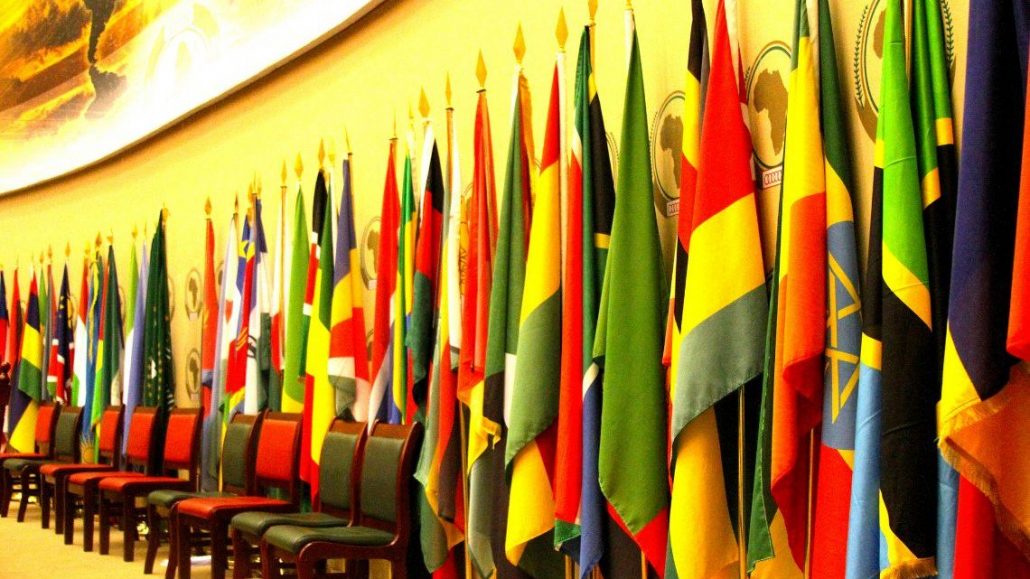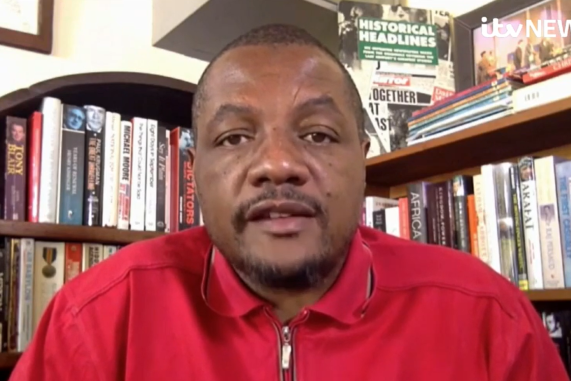
Feb 19, 2021 | Advocacy, News, Open letters
In a letter of 17 February, the ICJ and ZimRights called on the Chairperson of the African’s Commission on Human and Peoples’ Rights Working Group on Economic, Social and Cultural Rights to address Zimbabwe’s failure to meet its obligations to protect the rights of life and health of its population in respect of its COVID-19 vaccine policies.
Zimbabwe had failed to produce, publish and widely disseminate a comprehensive plan on vaccine acquisition and distribution. These are also necessary measures to secure the life and health of those living in neighbouring countries of Zimbabwe and therefore of broader concern within the Southern African Development Community in particular.
The ICJ and ZimRights called for an intervention of the Working Group and the wider African Commission with a view to ensure that vital information is made available by the Government of Zimbabwe about its national plan for COVID-19 vaccine procurement, distribution and roll-out including any resources it has set aside for these efforts.
To read the full letter, click
here.

Jan 18, 2021 | News
The ICJ today condemned the arbitrary arrests in recent days of prominent Zimbabwean human rights defenders Hopewell Chin’ono, Fadzayi Mahere and Job Sikhala, who have been critical of the government led by President Emmerson Mnangagwa.
The ICJ is concerned that their arrests and potential prosecutions are based solely on their exercise of protected human rights, including freedom of expression. The ICJ calls for their immediate release and the dropping of the charges against them.
The three have been charged with contravening section 31 of the Criminal Code which prohibits “publishing or communicating false statements prejudicial to the state”.
The alleged offences arise from posts made on social media and comments issued by all three in connection with an incident at a Harare taxi rank in which a police officer is alleged to have assaulted a mother with a baby on her back.
ICJ’s Africa Director Kaajal Ramjathan-Keogh said:
“The use of judicial processes to silence these three human rights defenders constitutes a continuing assault on members of the bar and journalists and is a clear attempt to chill others from carrying out their professional functions when these activities offend government authorities. Of concern is the continued use of criminal defamation (section 31) charges which were declared unconstitutional in 2014 yet continues to be weaponised against human rights defenders.”
Chin’ono, a journalist, was arrested on 8 January and had his application for bail rejected on 14 January. He has been handcuffed and held in leg irons during court appearances, despite a Magistrate’s ruling on 12 January that forcing Chin’ono to be shackled in leg irons and handcuffing him amounts to inhumane and degrading treatment.
Mahere is a lawyer and spokesperson of the opposition political party Movement for Democratic Change (MDC) Alliance. She was arrested on 11 January. On 15 January Magistrate Trynos Utahwashe failed to hand down his ruling on her application for bail as required.
Bail was however granted today. Mahere did raise concerns about the absence of essential COVID-19 measures in her detention, including the lack of temperature checks or sanitisers at the entrance to the police station; the failure to practice social distancing in the waiting area or holding cells; the unavailability of masks in the cells and use of old masks by cellmates; as well as the failure to provide sanitary materials to female inmates.
Sikhala is a human rights lawyer, the MDC Alliance Vice National Chairperson, and MP for Zengeza West.
He was part of Chin’ono’s legal team. On 15 January Magistrate Ngoni Nduna dismissed his bail application stating that there was overwhelming evidence against him not to grant it. He remains in prison custody while he awaits trial. Sikhala has also been handcuffed and held in leg irons during court appearances.
Ramjathan-Keogh added:
“The courts have unlawfully employed the denial of bail as well as the repeated prolonged bail proceedings as a punitive tool in these cases. Pre-trial detention without the opportunity for bail, with exceptions not applicable here, is a violation of the right to liberty. The government has an obligation to provide safe and humane conditions of detention.”
The ICJ recalls that that Zimbabwe’s Constitution guarantees the rights to freedom of expression and freedom of the media (Article 61); freedom from arbitrary detention (Article 50). Zimbabwe has an international legal obligation to protect these rights under the International Covenant on Civil and Political Rights (Article 9 and 19) and the African Charter on Human and Peoples’ Rights (Articles 6 and 9).
Contact:
Kaajal Ramjathan-Keogh, Director of ICJ Africa Programme, e: Kaajal.Keogh(a)icj.org ; t: +27845148039
Tanveer Jeewa, Legal and Communications Consultant, e: Tanveer.Jeewa(a)icj.org
Background Information:
Hopewell Chin’ono has been arrested on three separate occasions. He has been denied bail on each occasion and those bail proceedings have been unduly and unfairly prolonged. He was initially arrested in July 2020 after he expressed support on Twitter for an anti-corruption protest, which was planned for 31 July. He was charged with incitement to participate in public violence and breaching anti-corona virus health regulations.
He appeared in court three times to apply for bail and was only granted bail in September 2020, nearly two months after his arrest. On 3 November 2020, he was re-arrested for contempt of court for allegedly violating section 182(1)(a) or (b) of the Criminal Code because of a tweet he posted. His tweet stated: “On day of bail hearing CJ was seen leaving court in light of what has been said by judges what does this say.” The arrest violates Zimbabwe’s constitutional provisions, in particular, section 61, which provides for freedom of expression and the right of a journalist to practice his profession. He was again arrested on 8 January 2021 for allegedly communicating falsehoods by tweeting that police beat a baby to death.
Chin’ono was in 2020 denied access to the legal representative of his choice. The magistrate’s order barring lawyer Beatrice Mtetwa from continuing as defence legal counsel for Chin’ono violated his right to a fair trial and Mtetwa’s right to express her opinions freely. See ICJ’s statement of 21 August 2020.

Sep 8, 2020 | Advocacy, News
The ICJ, in collaboration with the Zimbabwe Anti-Corruption Commission (ZACC), today launched a whistleblowing application (tip off) mechanism in Harare.
It is common that people reporting corruption, tipping off and submitting key evidence prefer to stay anonymous, as they may have an often, well-founded, fear of reprisal by the parties involved. In such instances it is imperative for the ZACC to adopt a protective solution that guarantees user anonymity. This tip off mechanism will enable ZACC to receive information and evidence securely while the user of the mechanism remains anonymous. In turn ZACC will be able to use the information received to investigate and prosecute cases of corruption. Additionally, the application will also have a case management dashboard which will aid evaluation of ZACC’s efficiency in handling corruption cases.
Corruption undermines the rule of law by impeding access to justice through diversions of public resources for private gain. As such, the ICJ, through the support by the EU, is working towards increased transparency and integrity in the justice delivery system in order to increase access to justice for all. The whistleblowing application is not undertaken in isolation, as it builds on other initiatives to combat corruption under this programme, which include the Anti-Corruption Campaign, establishment of an anti-corruption court, capacity building, and various research initiatives.
“Corruption remains a key challenge confronting Zimbabwe. If unabated, corruption undermines democracy and the rule of law leading to violations of human rights. Its destructive effect on development disproportionately affects the poor. The participation of the public, in augmenting government efforts in combating corruption is therefore critical. It is our hope that through this awareness programme, ordinary members of the public will be able to recognize corrupt behaviour and feel empowered to take a stand against it. Further, we hope that the mechanism will sustain the momentum against corruption and increase the demand for improved accountability and transparency in various sectors in Zimbabwe thereby contributing to reduction of corruption,” said Blessing Gorejena, ICJ’s Zimbabwe Project Team leader.
Once officially launched, the whistle-blowing mechanism will be available to the public. It will be promoted and encouraged by publicizing stories of successful prosecutions and other actions as a result of information provided by whistle-blowers, as well as reporting on the effective protection of such persons from any form of reprisal or other harm.
The project is facilitated through the support of the European Union.
Contact:
Blessing Gorejena, Senior Legal Adviser and Team Leader of ICJ Zimbabwe Project, t:0772151989, e: blessing.gorejena(a)icj.org

Aug 27, 2020 | Advocacy, News
The ICJ, in collaboration with the Zimbabwe Anti-Corruption Commission (ZACC), convened a virtual Asset Recovery Training Workshop from 18-26 August. The training was part of the ICJ efforts to advance the rule of law in Zimbabwe.
The training was held with investigators from ZACC. It was led by Dr Prosper Maguchu, a legal expert on human rights and financial crimes.
The objective of the training was to enhance the capacity of ZACC investigators to conduct financial investigations and apply asset tracing techniques in relation to corruption and money laundering cases.
Over the past 50 years, it is estimated that Africa has lost in excess of one trillion US dollars in illicit financial flows (IFFs) with claims that this is roughly equivalent to all of the official development assistance received by the continent during the same timeframe.
Zimbabwe is not immune to this challenge of IFFs.
ZACC chairperson Justice Loice Matanda-Moyo remarked that financial crimes and illicit financial flows had become a serious threat the Zimbabwe economy and beyond our borders. She pointed to the prevalence of tax evasion, smuggling, corruption, fraud, drug trafficking and money laundering and noted that ill-gotten proceeds involving money were moving across borders. In such instances it is a daunting task for investigators and asset recovery officers to follow the money trails and recover proceeds of crime. She noted that the virtual asset recovery workshop was an opportune moment time to enhance the capacity of investigators and asset recovery officers.
“This training was very timely and critical. It enhanced the capacity of ZACC in its pursuit to recover assets accumulated though corruption. The investigators were equipped with the requisite skills and techniques involved in asset recovery that include collecting evidence, issuing restraint and freezing orders and making mutual legal assistance requests. Recovering stolen assets is an important process in the fight against corruption as it deters corruption by turning it into a high-risk, low-reward activity. Additionally, asset recovery is a means to obtain resources for the development of the country, which resources can also be channelled towards strengthening the fight against corruption in Zimbabwe, thus contributing to the greater respect for the rule of law,” said ICJ Senior Legal Adviser Blessing Gorejena.
The training workshop provided a comprehensive overview on what asset recovery means, exploring approaches and tools in asset recovery and enhance the technical capacity of the investigators to trace, seize and confiscate and repatriate illicitly acquired assets.
Participants in this workshop included 18 investigative officers and two Commissioners. Overall there were 11 female and 9 male participants in attendance.
This workshop was supported by the European Union Delegation in Zimbabwe.
Contact:
Shaazia Ebrahim (ICJ media officer), c: +277 167 067 19 e: shaazia.ebrahim(a)icj.org
Vimbai Mutandwa (ICJ legal advisor), c: +263 77 351 7733 e: vimbai.mutandwa(a)icj.org

Aug 21, 2020 | News
The order of the Magistrates’ Court of Zimbabwe barring lawyer Beatrice Mtetwa from continuing as defence legal counsel for journalist Hopewell Chin’ono is a violation of Chin’ono’s right to a fair trial and Mtetwa’s right to express her opinions freely, said the ICJ today.
“Hopewell Chin’ono is already facing persecution because of his reporting on alleged corruption and now his lawyer is prevented from defending him properly. The Magistrate Court’s decision violates Zimbabwe’s domestic, international and regional legal obligations regarding freedom of expression and the right to a fair trial,” said ICJ Secretary General Sam Zarifi.
Hopewell Chin’ono, a prominent Zimbabwean journalist, is currently in custody and is facing trial on charges of inciting public violence, related to his reporting on corruption.
He appointed Beatrice Mtetwa, a prominent Zimbabwean human rights lawyer to act as his defence legal counsel.
After Hopewell Chin’ono was denied bail, it is alleged that a Facebook page by the name “Beatrice Mtetwa and The Rule of Law” posted the following statements:
“Where is the outrage from the international community that Hopewell Chin’ono is being held as a political prisoner? His life is in serious peril. Raise awareness about his unlawful imprisonment. Do not let him to be forgotten. You or someone you love could be the next one abducted from your home and put in leg irons.”
On account of these alleged statements and at the instance of an application by the State, the Magistrates’ court barred Beatrice Mtetwa from continuing as defense legal counsel on grounds that she made statements which demonstrates that “she is no longer detached from the case to continue appearing in it” and has lost the “requisite objectivity of an officer of the court”.
The full judgment by the court can be accessed here.
Beatrice Mtetwa denied ownership of or control over the said Facebook page. Filmmaker Lorie Conway is listed as the only administrator of the said Facebook page. Despite this, the Magistrate’s Court ruled that Beatrice Mtetwa is aware of the page, approved its creation and therefore, these statements are attributable to her.
“Regardless of whether or not these statements can be attributed to Beatrice Mtetwa, the International Commission of Jurists is concerned about the chilling effect which the judgment has on the exercise of freedom of expression by lawyers, the accused persons’ right to legal representation and the right to fair trial. The judgment seems to suggest that if a lawyer makes public statements such as those allegedly attributed to Beatrice Mtetwa, the lawyer should be barred from continuing as legal counsel in the matter—and that is contrary to international standards regarding the role of lawyers,” Zarifi said.
This right is underscored in Principle 23 of the United Nations Basic Principles on the Role of Lawyers which states that:
“Lawyers like other citizens are entitled to freedom of expression, belief, association and assembly. In particular, they shall have the right to take part in public discussion of matters concerning the law, the administration of justice and the promotion and protection of human rights…”
The right to legal representation is recognised in section 70(1)(d) of the Constitution of Zimbabwe. This guarantees an accused person the right to appoint a legal practitioner of their choice to act as their defence attorney. The same right is underscored in article 14(3)(b) of the ICCPR and article 7(1) of the African Charter. The right to legal representation is an integral element of the right to fair trial as elaborately explained under the Principles and Guidelines on the Right to a Fair Trial and Legal Assistance in Africa.
Contact
Shaazia Ebrahim (Media Officer) email: Shaazia.Ebrahim(a)icj.org








